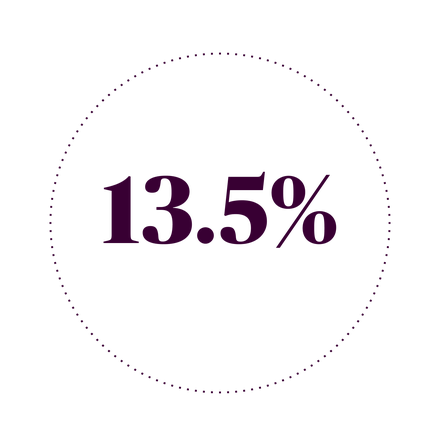WeightWatchers and Menopause: The WW Guide to Menopause
Menopausal weight gain? That's life.
Menopausal weight loss? That's life on WeightWatchers.
The science and support you need to feel your best
- Clinically proven nutrition and fitness to help you manage your weight
- One-on-one support from world-class Registered Dietitians and Clinicians
- Access to prescription weight-loss medications that target menopausal weight gain, if you qualify
- Menopause workshops and group chats with Coaches and members who get it—because they’re going through it, too


Lose weight your way
During menopause, women gain an average of 1.5 pounds a year while losing critical muscle mass, which can further compound midlife health risks including heart disease.

Average loss of body weight after 6 months for women members of perimenopausal age accessing weight-loss medications access through WeightWatchers Clinic.**

How much more weight women members age 45+ lose with WeightWatchers compared to those doing it alone.*
![WeightWatchers works for _____ [perimenopause/menopause/post-menopause/me] “I didn't know menopause belly was a thing until I got one. My weight felt out of control—like your hormones are making the decisions. WeightWatchers gives me options for what might work best for my body today. I wouldn’t want to be without it during this lifestage.” Melodie, 56, postmenopause -52 lbs ✓Points Program ✓Medication “Perimenopause hits you out of nowhere and you think you’re losing your mind. Brain fog. Mood swings. Weight gain that won’t budge. It’s not fun when it happens, but it’s part of life. And what a gift it is to age. I was able to get many of my symptoms under control with modern medicine. As for the weight gain, I tackled that with WeightWatchers.” Meryl, 52, perimenopausal -35 lbs ✓Diabetes Program “My GLP-1 definitely helps with my appetite, but the dietitian is the most important because she's telling me what foods I need for bloating, for my high blood sugar, for what's easy for me to digest. To go to the doctor and be given that clean bill of health—that was my proudest moment. I did it. I am still here. I am healthy. Therefore, I can be healthy for others.” Tamara, 45, perimenopausal -147 lbs ✓Medication](https://v.cdn.ww.com/media/system/cms/us/MenopauseTestimonials_mobile_2.gif?width=1020&auto=webp&optimize=medium)
![WeightWatchers works for _____ [perimenopause/menopause/post-menopause/me] “I didn't know menopause belly was a thing until I got one. My weight felt out of control—like your hormones are making the decisions. WeightWatchers gives me options for what might work best for my body today. I wouldn’t want to be without it during this lifestage.” Melodie, 56, postmenopause -52 lbs ✓Points Program ✓Medication “Perimenopause hits you out of nowhere and you think you’re losing your mind. Brain fog. Mood swings. Weight gain that won’t budge. It’s not fun when it happens, but it’s part of life. And what a gift it is to age. I was able to get many of my symptoms under control with modern medicine. As for the weight gain, I tackled that with WeightWatchers.” Meryl, 52, perimenopausal -35 lbs ✓Diabetes Program “My GLP-1 definitely helps with my appetite, but the dietitian is the most important because she's telling me what foods I need for bloating, for my high blood sugar, for what's easy for me to digest. To go to the doctor and be given that clean bill of health—that was my proudest moment. I did it. I am still here. I am healthy. Therefore, I can be healthy for others.” Tamara, 45, perimenopausal -147 lbs ✓Medication](https://v.cdn.ww.com/media/system/cms/us/MenopauseTestimonials_desktop_6.gif?width=2016&auto=webp&optimize=medium)
3 myths about menopause

#1
It can last years
Menopause itself is only a day. It occurs when you’ve gone without a menstrual period for exactly 12 months. But the lead-up to that moment, known as perimenopause, can last up to a decade.

#2
It’s basically just hot flashes
Hot flashes affect up to 80% of perimenopausal women, but there are 30+ other symptoms to know. Many are both disruptive and warranting care, such as insomnia and depression.

#3
It’s only a reproductive issue
Menopause starts as a reproductive shift. Your ovaries stop producing eggs and your menstrual period ends. But that affects every part of the body, from your brain to your bones to your muscles and metabolism.

#1
It can last years
Menopause itself is only a day. It occurs when you’ve gone without a menstrual period for exactly 12 months. But the lead-up to that moment, known as perimenopause, can last up to a decade.

#2
It’s basically just hot flashes
Hot flashes affect up to 80% of perimenopausal women, but there are 30+ other symptoms to know. Many are both disruptive and warranting care, such as insomnia and depression.

#3
It’s only a reproductive issue
Menopause starts as a reproductive shift. Your ovaries stop producing eggs and your menstrual period ends. But that affects every part of the body, from your brain to your bones to your muscles and metabolism.
Your feel-good guide to menopause
Get the memo on meno
Sign up for our newsletter The Hot Flash to get the latest news, expert tips, nutritious recipes, and other inspo for feeling good in your body during menopause and beyond.*Based on a secondary analysis of a 6-month randomized controlled trial (n=165 women 45 years or older with complete data) that compared participants following WW to those given standard nutritional guidelines alone. Funded by WW international, Inc.
**Based on an internal analysis of data of 6323 WeightWatchers Clinic members from January 2022-2023 in women 45 years or older.
†At 6 months, participants in a clinical trial of the WW program lost an average of 12 lbs (5.4% of body weight).
^Eligible patients lost an average of 21% of their body weight (-48 lbs) in a 72-week clinical trial evaluating 15 mg tirzepatide, when paired with diet and exercise.
††At 6 months, participants in a clinical trial of the WW Points program lost an average of 12 lbs (5.4% of body weight). For WW Clinic members who were prescribed compounded semaglutide, patients lost on average 7 pounds (3.2%) of their body weight at the end of their first month. Compounded drug products have not been approved by the FDA, or reviewed by the FDA for safety, effectiveness, or quality. See important safety information.








